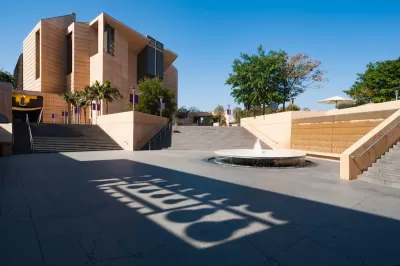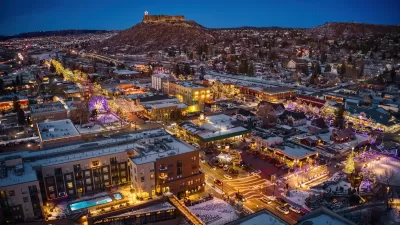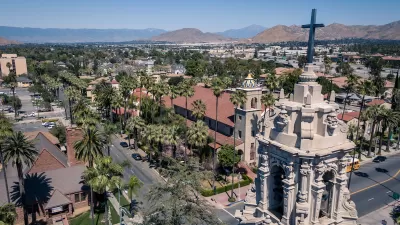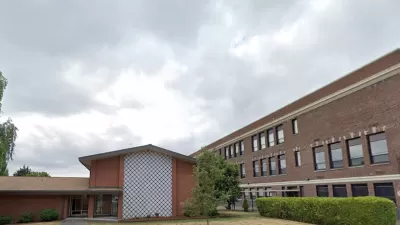A new California state bill lets churches and other faith-based institutions bypass environmental reviews for proposed affordable housing on their properties.

According to an article by Lynette Wilson for the Episcopal News Service, the Catholic Diocese of Los Angeles, which sprawls “from the Pacific Ocean to the northern tip of Santa Barbara County, east to Needles on the Arizona border, and south to the San Diego County,” plans to build affordable housing on 25 percent of the 133 church campuses it owns.
As Wilson explains, “The diocese’s churches are working with development partners to build and maintain apartment complexes on land held in trust by the diocese that’s being leased to its various partners.”
The project is part of a growing ‘Yes in God’s Backyard’ movement that calls on religious institutions to contribute to creating more affordable housing for people struggling to afford housing costs. The movement gained steam with the passage of California’s SB 4, which streamlines the permitting process for houses of worship and nonprofit colleges to build affordable housing.
A Los Angeles Times editorial from December 2022 points out that “‘California has nearly 39,000 acres of land used for religious purposes that could be developed,’ with close to half of it in ‘high opportunity’ neighborhoods, where cost, zoning, and local opposition often make it difficult to build affordable housing.”
FULL STORY: Los Angeles diocese set to develop affordable housing on 25% of church-owned land

Study: Maui’s Plan to Convert Vacation Rentals to Long-Term Housing Could Cause Nearly $1 Billion Economic Loss
The plan would reduce visitor accommodation by 25,% resulting in 1,900 jobs lost.

North Texas Transit Leaders Tout Benefits of TOD for Growing Region
At a summit focused on transit-oriented development, policymakers discussed how North Texas’ expanded light rail system can serve as a tool for economic growth.

Why Should We Subsidize Public Transportation?
Many public transit agencies face financial stress due to rising costs, declining fare revenue, and declining subsidies. Transit advocates must provide a strong business case for increasing public transit funding.

Alabama: Trump Terminates Settlements for Black Communities Harmed By Raw Sewage
Trump deemed the landmark civil rights agreement “illegal DEI and environmental justice policy.”

Dear Tesla Driver: “It’s not You, It’s Him.”
Amidst a booming bumper sticker industry, one writer offers solace to those asking, “Does this car make me look fascist?”

A Visual Celebration of Manhattan’s Chinatown Elder Community, Through Food
Lanterns, cafeteria trays, and community connection take center stage in this stunning photo essay.
Urban Design for Planners 1: Software Tools
This six-course series explores essential urban design concepts using open source software and equips planners with the tools they need to participate fully in the urban design process.
Planning for Universal Design
Learn the tools for implementing Universal Design in planning regulations.
City of Santa Clarita
Ascent Environmental
Institute for Housing and Urban Development Studies (IHS)
City of Grandview
Harvard GSD Executive Education
Toledo-Lucas County Plan Commissions
Salt Lake City
NYU Wagner Graduate School of Public Service





























